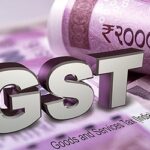The Bangalore Special Court for Economic Offenses has acquitted an individual from prosecution under Section 276CC for failure to file a return of income. The court accepted the individual’s claim that they had a bonafide belief that since tax on their salary was deducted by their employer and they had received a Form 16, they were not required to file an income tax return. The court also noted that the individual’s statement and reply to the show cause notice clearly revealed that they had no intention to evade tax.
The revenue department had observed that the individual, who was the General Manager of NCC Limited and earned income from both salary and bank deposits, had not filed their income tax return from Assessment Year 2002-03 until Assessment Year 2011-12. Though the individual later filed their return of income and paid the due taxes with interest, the revenue department held that they were a “habitual defaulter” and launched prosecution.
The Special Court took note of the individual’s submission that they had a bonafide belief that their salary income was subject to TDS and that since their employer provided a Form No.16, they were not required to file a return of income. They also stated that they had income from salary and interest from bank deposits and that both were subjected to TDS, which was duly deducted and reflected in Form 26AS, thus a substantial portion of tax has been paid. The individual also stated that they were unaware of the requirement to file a ITR until the complaint was lodged by the revenue department for Assessment Year 2011-12 and subsequently the return was filed along with payment of due tax and interest.
The court observed that as per Section 276CC, there shall be a willful failure to file ITR to evade the tax, however, “in the present case, in accused’s statement as well as the reply notice given for the show cause notice clearly reveal that he had no intention to evade tax.” The court also accepted the individual’s reliance on the Bangalore ITAT ruling in KPTCL v. ITO (1983) 93 taxmann.com 89 (ITAT Bengaluru) where the TDS proceedings under Section 201(1)/(1A) for failure to deduct tax on leave encashment portion of employees’ salary were quashed considering the Assessee’s bona fide belief that its employees were to be regarded as employees of State Government, eligible for exemption under Section 10(10AA)(i).
The court held that there was no material to show that the individual had willfully and deliberately not filed the income tax return to evade the tax and accordingly acquitted the individual from prosecution. The court also noted that the sanction order permitted the revenue department to file a complaint under Section 276C(1), however, the complaint was filed under Section 276CC, thus “Even on this ground also this complaint is contrary to the sanction order and the complainant not produced the corrigendum of sanction order.”
The court also observed that no penalty proceedings were initiated against the individual under Section 272(a) and that “the complainant has not initiated penalty proceedings against the accused as there was a reasonable cause for the non-filing of returns.” They also accepted the individual’s contention that the summons and complaint were without jurisdiction and that as per Section 131(1), the jurisdictional Assessing Officer was supposed to issue the summons, however, in the present case, the summons was issued by the Deputy Director of Income Tax Unit-2(3), who did not have jurisdiction.
With respect to the validity of the sanction order, the Special Court noted that the order was passed by the Director General of Income Tax and not the Chief Commissioner or Commissioner of Income Tax. However, they referred to the CBDT Notification dated 13.11.2014,







